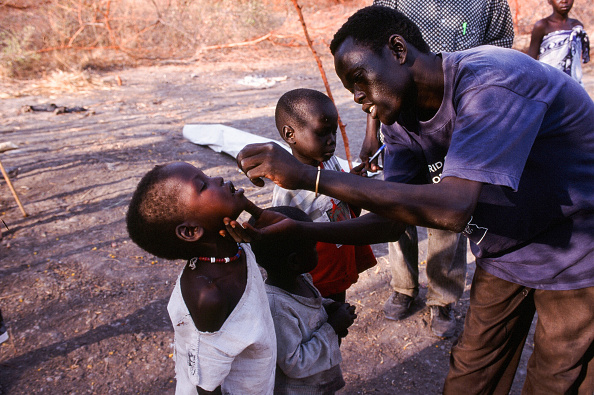
Global charity decries polio spike among children in South Sudan

International charity, Save the Children, has expressed concern about a spike in polio cases among children in South Sudan as new cases put lives at further risk
The charity said South Sudan has recorded nine new cases of polio just three months after the World Health Organization (WHO) declared Africa free of the wild poliovirus.
“This outbreak has emerged as a result of a low immunity and under-immunization of communities rather than a problem with the vaccine,” Save the Children country director Rama Hansraj said in a statement issued in Juba.
The charity said the spike raises deep concerns over the further spread of polio in South Sudan, compounded by low levels of sanitation and health care available.
It said these recent cases are reportedly from the vaccine-derived poliovirus 2 (cVDPV2), a mutation of a weakened form of the virus that was administered through vaccination.
The spike has raised fears that even fewer families will vaccinate children, as well as could spread further due to the lack of proper sanitation in many parts of the country.
“With already one of the highest under-five mortality rates in the world, a chronically malnourished population and recurring epidemics, South Sudan faces a new threat to children in a new poliovirus outbreak,” Save the Children warned.
According to the charity, the country’s health care system is already weak, specifically in the Greater Bahr el Ghazal region where the new polio cases surfaced.
Coupled with low vaccination coverage and poor hygiene and sanitation in the area, the virus poses a risk for children in Sudan, where only 40 percent of the people have access to healthcare, it said.
The charity said the situation is exacerbated by recent floods which have destroyed parts of the health infrastructure and limited access to essential health services such as vaccination programs.
According to the UN, flooding in South Sudan affected more than 900,000 people since June, including nearly 400,000 who have been displaced.






